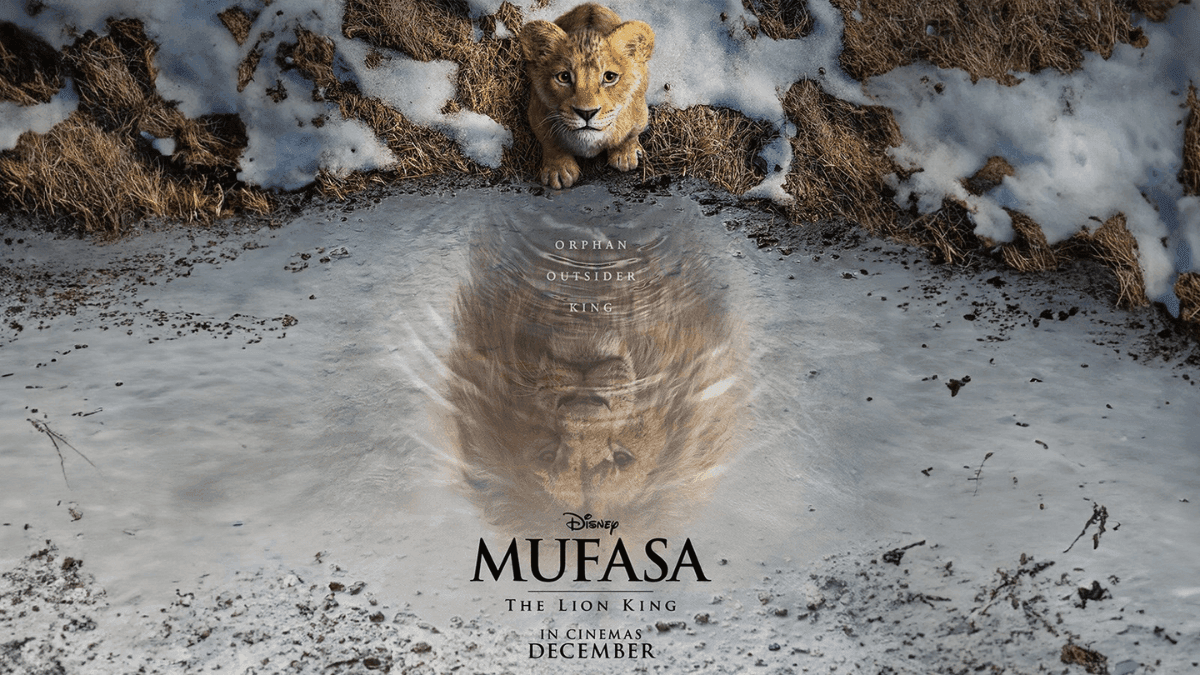An awe-inspiring showcase of CGI artistry let down by a derivative screenplay and lack of emotional depth.
Disney’s latest addition to The Lion King franchise, Mufasa: The Lion King, directed by Oscar-winning filmmaker Barry Jenkins, takes us back to the origins of one of the most beloved characters in animated history. Combining photorealistic CGI with a soundtrack by Lin-Manuel Miranda, the film dazzles the eye but falls short in delivering the emotional resonance that made the original 1994 classic unforgettable.
A Visual Feast Like No Other
From the moment the film begins, it’s clear that technological innovation is the real star of Mufasa: The Lion King. Utilizing advanced CGI techniques that improve upon Jon Favreau’s 2019 remake, the visuals bring the African savannah to life with stunning detail. From the textured fur of the lions to the way light refracts through droplets of water, every frame is a masterpiece of animation.
The film even addresses one of the key criticisms of its predecessor: the expressionless faces of the animals. Mufasa, voiced with gravitas by Aaron Pierre, exudes a subtle emotive quality through his soulful amber eyes, but the heart of the narrative fails to capitalize on these visual advancements.
A Tale of Brotherhood and Rivalry
The story delves into Mufasa’s past, exploring his adoption into a pride led by the regal king and the complex relationship with his adoptive brother, Taka (later known as Scar). This brotherly bond, central to the film, is strained by feelings of inadequacy and jealousy, echoing the age-old narrative of sibling rivalry.
While the premise holds promise, the execution feels uninspired. Jeff Nathanson’s script leans heavily on familiar tropes and overly sentimental moments, offering little originality. The humour, delivered by returning characters Timon (Billy Eichner) and Pumbaa (Seth Rogen), lands awkwardly, detracting from the story’s emotional weight.

Musical Numbers and Action Sequences
Lin-Manuel Miranda’s compositions provide some toe-tapping moments, with songs like I Always Wanted a Brother standing out. However, the film could have benefited from fewer musical interludes, allowing for more depth in storytelling.
The action sequences, particularly the river rescue of young Mufasa, are breathtakingly choreographed and among the film’s highlights. Yet, these moments are undermined by a lack of narrative substance, leaving the audience yearning for more.
A Missed Opportunity for Barry Jenkins
Barry Jenkins, known for his poetic storytelling in Moonlight and If Beale Street Could Talk, struggles to leave his mark on this massive Disney production. The film, while visually impressive, feels like a corporate exercise rather than a heartfelt passion project, wasting the talents of a director with a knack for nuanced emotional narratives.
Verdict: Eye Candy Without Emotional Calories
Mufasa: The Lion King is a triumph of technology but a disappointment in storytelling. For fans of the franchise, the film offers a visually spectacular trip down memory lane but fails to deliver the heart and soul that made the original so beloved.
Also read: Moonchild Sanelly Unveils ‘To Kill a Single Girl (Tequila)’ Ahead of UK and Europe Tour



